Self-Hosting Guide to Alternatives: Feedly, Inoreader
Self-hosted alternatives to popular online news feed readers

It's 2024, and despite the fact that more and more people are getting their news from social media, it's hard to beat the convenience and functionality of good ol' RSS feeds. But like many other hosted services, trusting your RSS aggregation with the likes of Feedly and Inoreader can be a privacy nightmare given how much information can be collected about a user based on the feeds they follow.
Fortunately, a ton of great self-hosted alternatives exist that don't compromise on privacy while remaining competitive with the functionality and features of their popular hosted counterparts.
FreshRSS
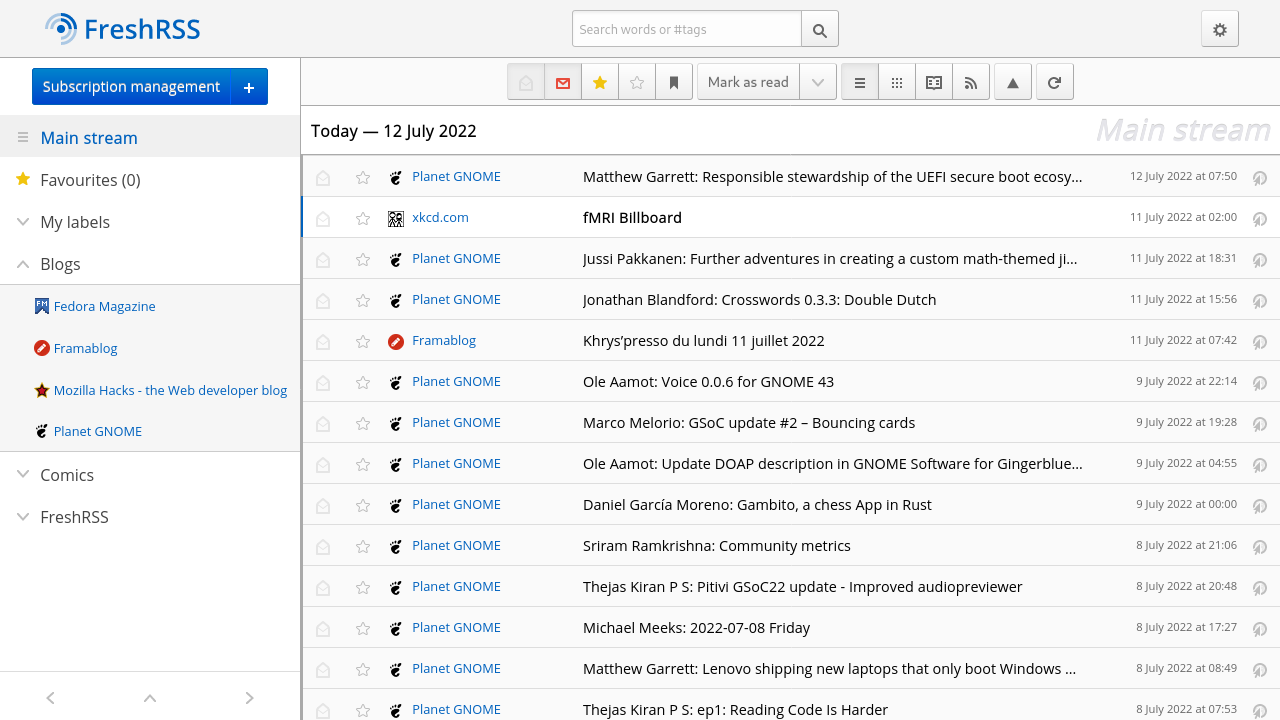
FreshRSS is the contender-to-beat in the self-hosted RSS world, and for good reason – its look and feel is similar to its hosted counterparts (even if the default theme is a bit of an eyesore) and comes packed with a ton of functionality – search, filters, a built-in reader, themes, extensions, WebSub support, and more.
Like many others on the list, FreshRSS also ships with a few common APIs that make it compatible with a number of desktop and mobile clients.
FreshRSS is a fairly easy install with support for both bare metal and Docker (including an image from the LSIO team). By default, the application ships with a SQLite database that can be swapped with a PostgreSQL or MySQL database for better performance with larger installations.
Miniflux
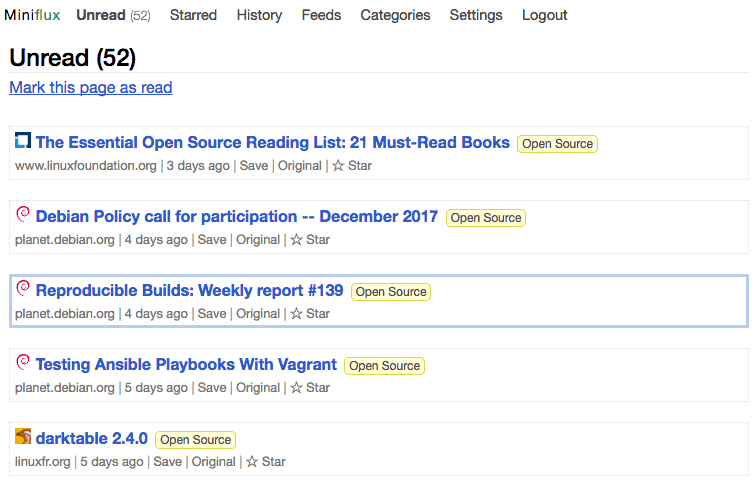
Miniflux is a popular self-hosted RSS aggregator that markets itself as a minimal and lightweight alternative focused simply on reading feeds (I'm still not sure what opinionated means...). A quick glance at its interface confirms this as it sports a minimal feed with a short list of menu options scattered across the top. Despite this, the platform still supports a number of features beyond simply subscribing to feeds, with most of them focused on content manipulation for easy reading and ingestion.
Although Miniflux's developers lean into its minimal aesthetic and encourage users to leverage its PWA directly from their browsers, it also supports third-party clients via the Fever API for those who prefer dedicated apps on-the-go.
The application can be installed via bare metal or Docker and supports only PostgreSQL for data storage.
Tiny Tiny RSS
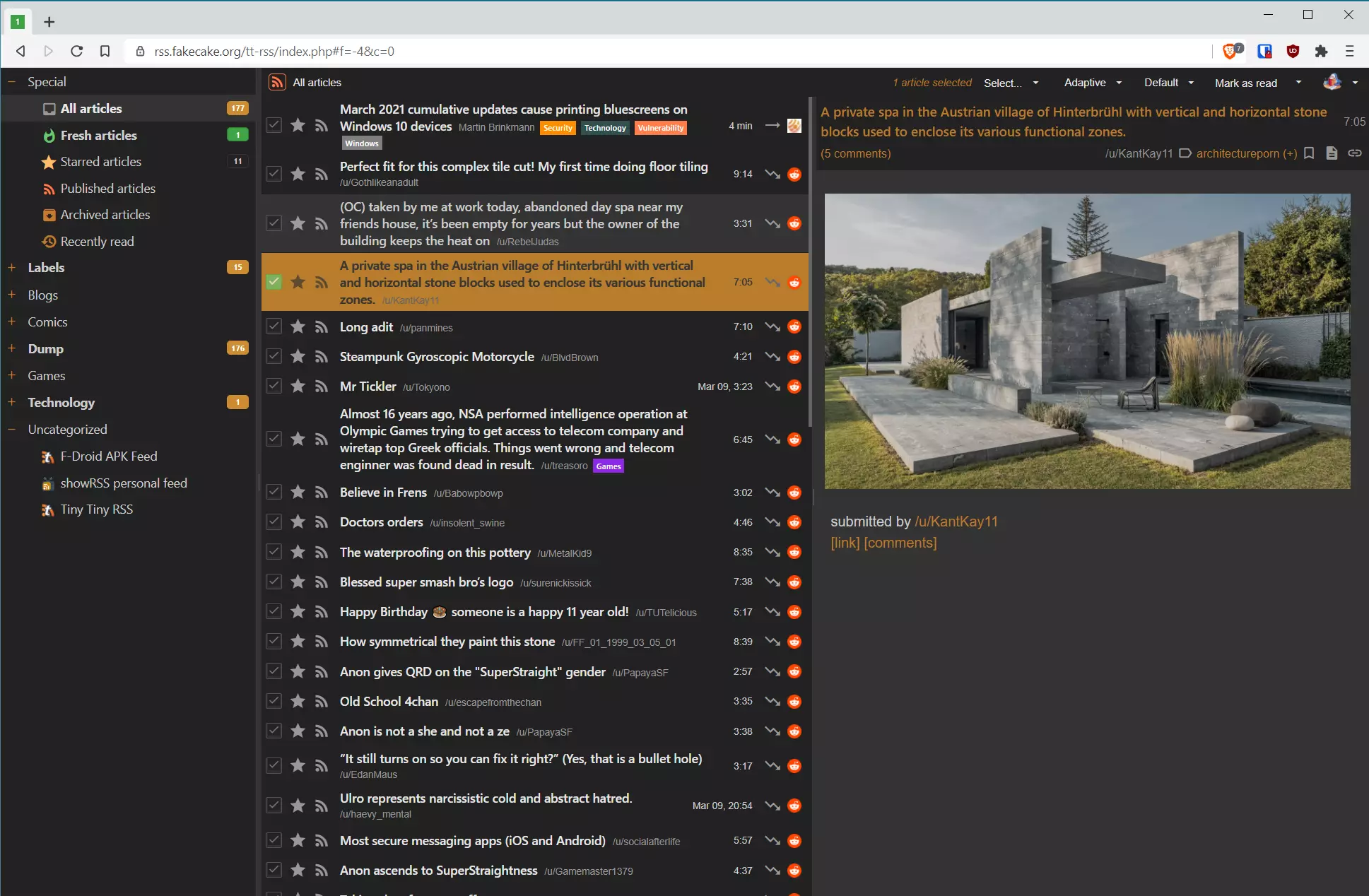
Tiny Tiny RSS is another full-fledged replacement for hosted RSS aggregators most akin to FreshRSS in terms of features, functionality, and popularity. The software shines most with its extensive plugin catalogue, themes, article filtering/scoring methods, and various ways of sharing content with others. Often abbreviated as TTRSS, Tiny Tiny RSS is also infamous for having a development team that can be a bit abrasive to newcomers and self-hosting amateurs.
Tiny Tiny RSS has its own internally developed mobile app for Android devices and also supports additional APIs via plugins (Fever, FreshRSS, Google Reader) for increased support across third-party clients.
The platform can be easily installed via Docker with its provided docker-compose.yml and .env files, which requires four containers (five, if you're making backups) to get up-and-running.
RSS
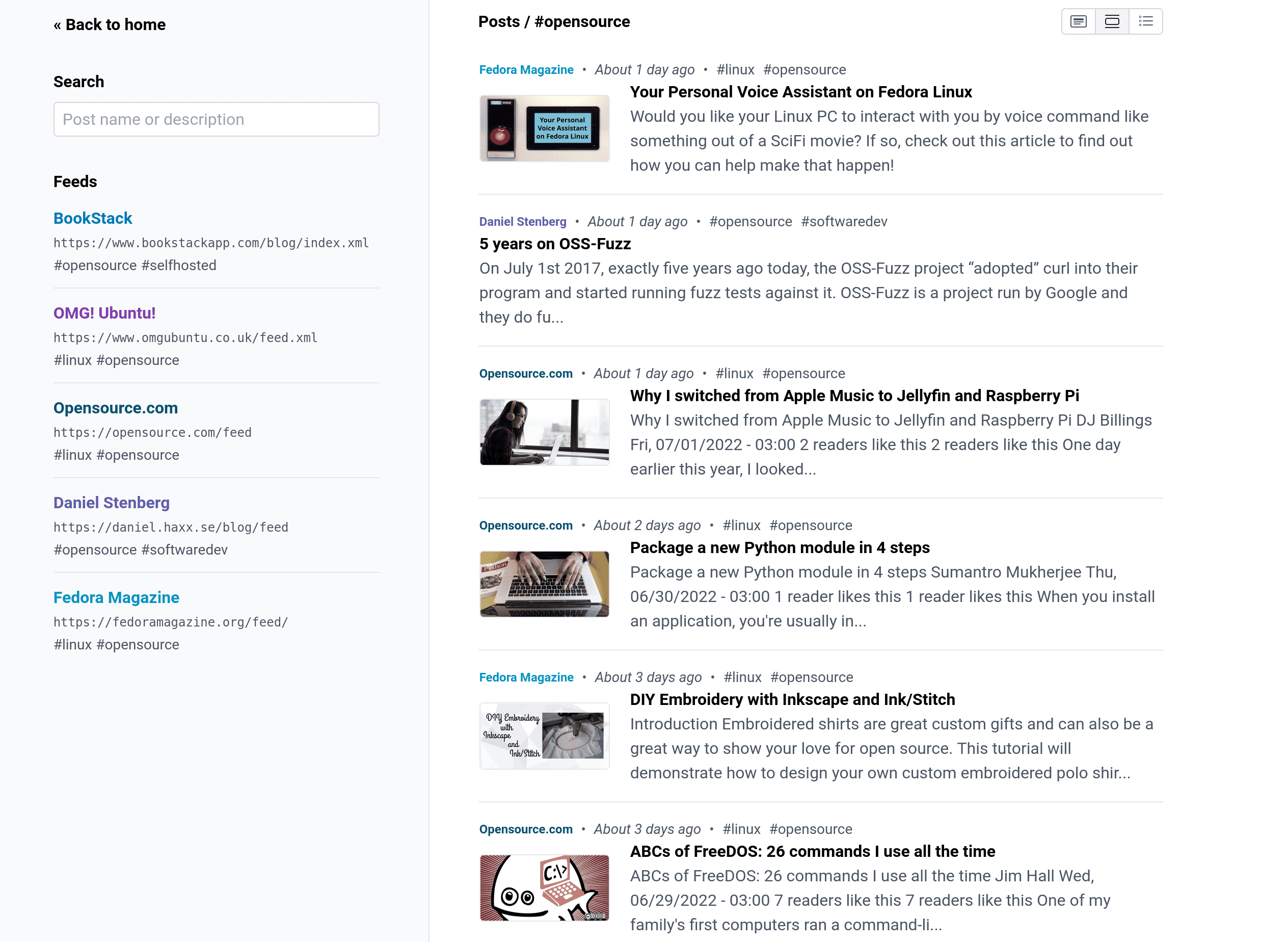
RSS is a minimal feed aggregator with a unique approach – its configuration is managed entirely via a plaintext file. Within the file, users can add RSS feed links followed by tags that can be used for filtering within the application's interface. The interface itself sports only a few customizations, including the ability to view feeds by tags and various display modes (cards, list, compact).
Created by BookStack developer Dan Brown, the project is relatively small in scope and tagged as low maintenance for future viability. As a result, it doesn't ship with support for external clients – although its minimal interface makes it easy to view and interact with from most browsers.
RSS can be installed via Docker and doesn't require any special configuration aside from the aforementioned plaintext file for feed tracking.
CommaFeed
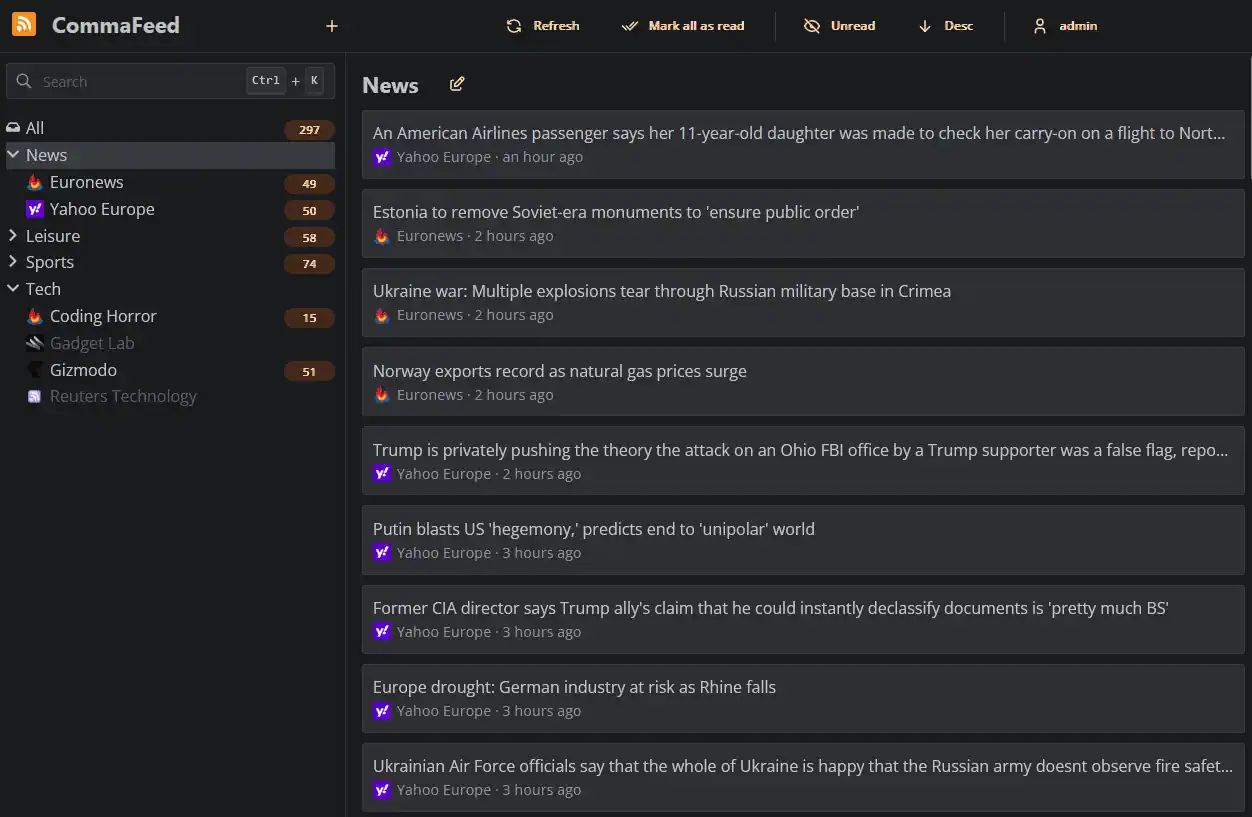
CommaFeed is a Google Reader-inspired platform that packs most of the features needed to replace the popular hosted aggregators without some of the frills of the others (community plugins, custom themes, etc.). However, where it may lack in bells and whistles it makes up for in performance – the software is developed to be lightweight, easy to spin-up, and have a low memory footprint. The web interface also lacks some of the clutter found in other interfaces, which makes it easy to discern unread feeds and categories at a glance.
CommaFeed leverages the Fever API to make it compatible with a wide range of clients across devices.
The software can be installed via Docker and comes with its own embedded database, although users can opt into bringing their own PostgreSQL or MySQL database if desired.
Nextcloud News
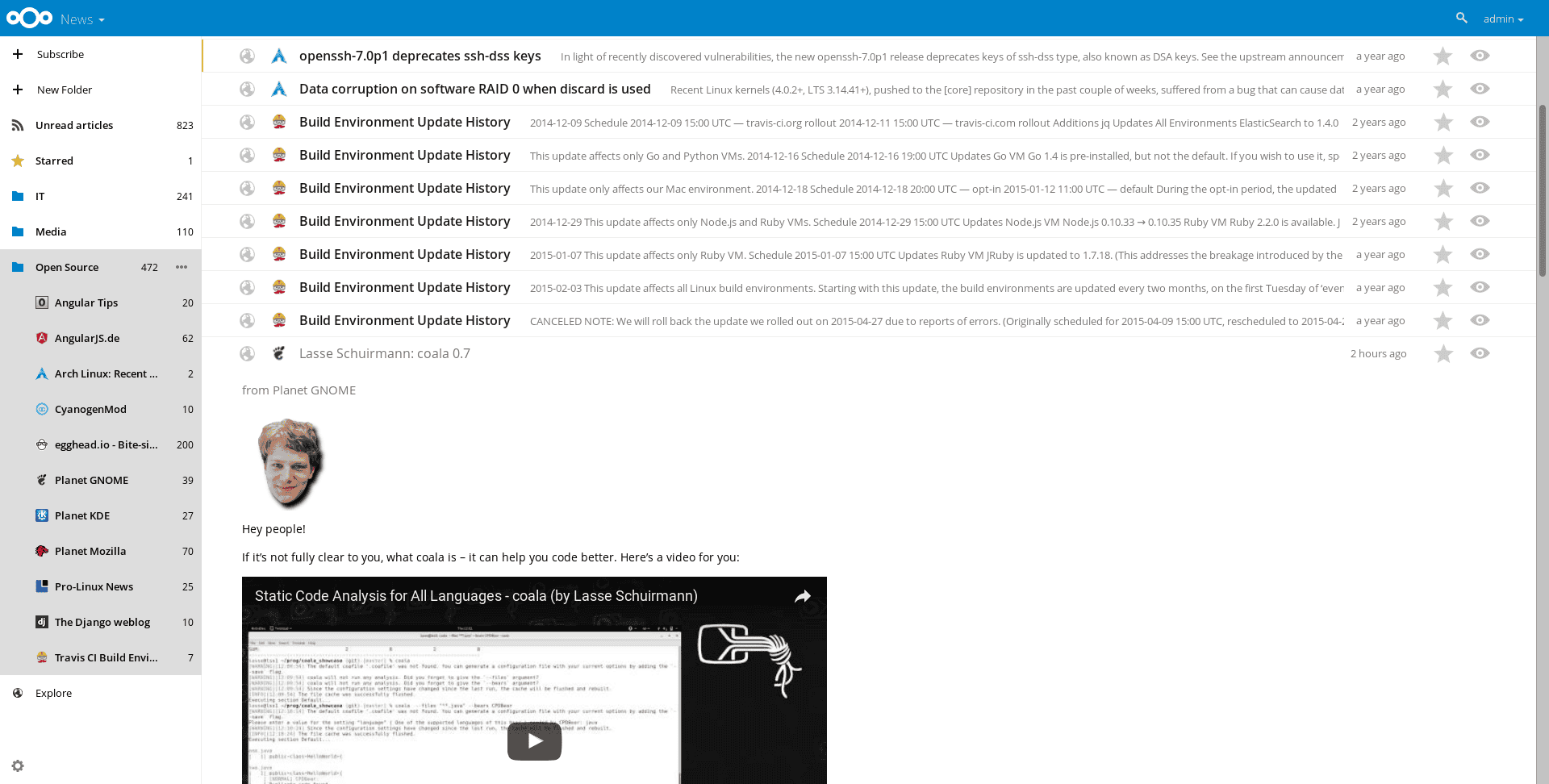
Nextcloud News is a common alternative for users already deploying the cloud storage platform given its ability to be installed and managed as an add-on to an existing installation. The add-on's feature set is fairly basic and missing some of the bells and whistles that make the others stand out, but it's still a great option for Nextcloud users looking for the ability to easily follow feeds and read articles.
For users looking to read their news on-the-go, several third-party clients exist that leverage Nextcloud's REST API for synchronization.
Honorable Mentions
What did I miss?
Did I miss anything? Feel free to reach out using any of the communication methods listed on the site's contact page to get in touch.

Comments